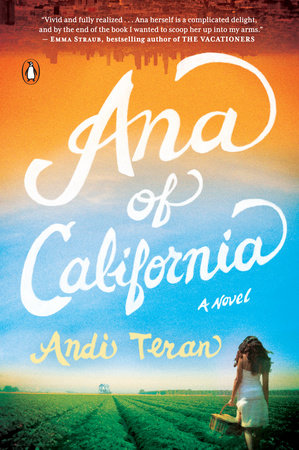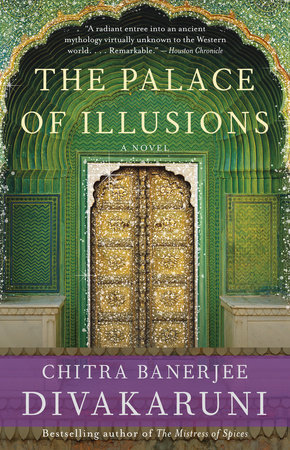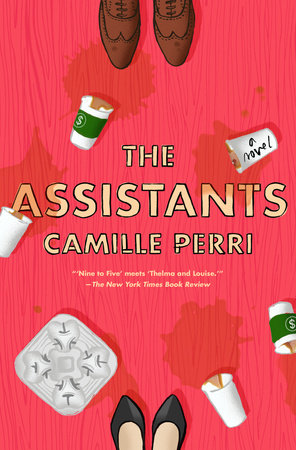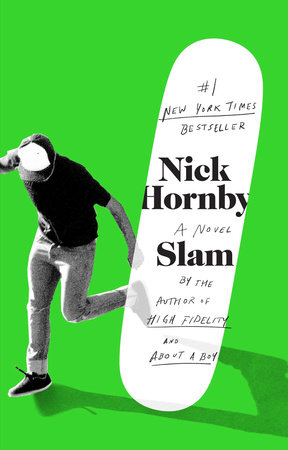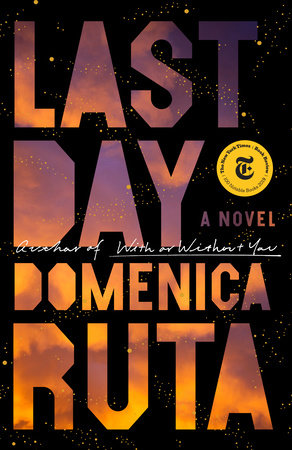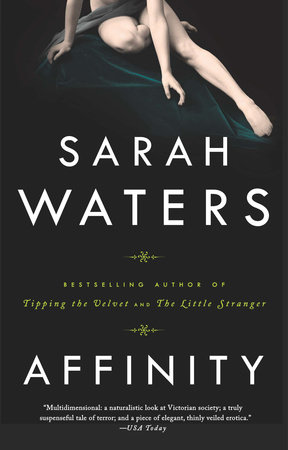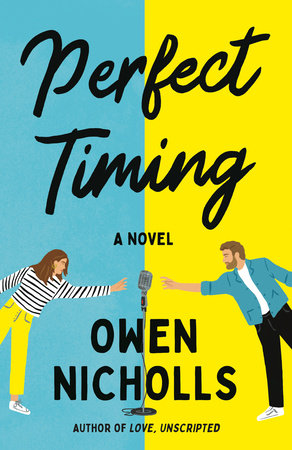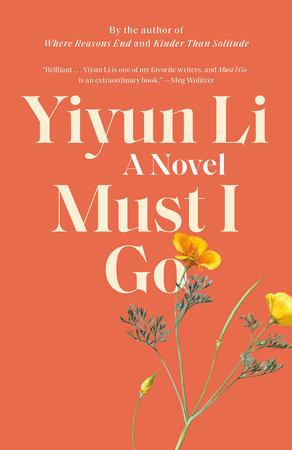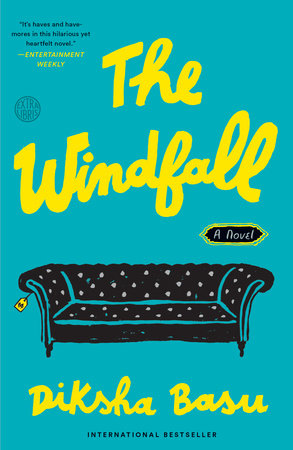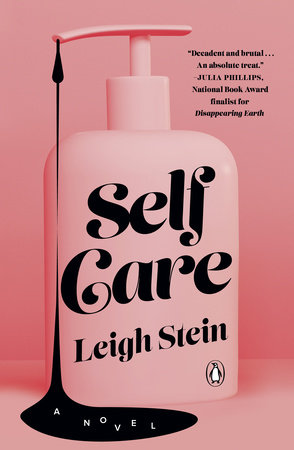Author Q&A
Q. What was your inspiration for writing The Windfall? Where did the idea for the story originate?
A. This book started as a collection of short stories during my MFA at Columbia but slowly became a novel in the year and a half after I graduated. Hardly any of the original stories remain in the novel but that’s where I discovered my characters. I needed to write all the stories in order to understand, know, and love my characters as deeply as I now do but the structure has changed completely.
Before I started on this manuscript, I was stuck in the void of writing twenty-something women because “write what you know,” everyone said. But twenty-something women weren’t interesting me (even though I was one at the time), and other writers had done it much better than I ever could anyway.
I handed one of the first stories, very nervously, to Gary Shteyngart – not a lot of people at Columbia were writing through humor – who came back to me a week later, saying he read it on a flight to China and found himself laughing out loud on the plane. I am forever grateful to Gary for reading and giving me that encouragement, and the permission to write from the perspective of a middle-aged Indian man. His feedback gave me the confidence to keep writing these characters and to keep using humor as a tool to explore contemporary India. And later, I’m forever grateful to my agent, Adam Eaglin, for reining in some of my attempts at humor.
Q. You’ve been both an expat and an immigrant in your life. How did these experiences play into the book?
This book is, I hope, different from a lot of the work coming out of the subcontinent right now. We live in a globalized world in which the terms ‘immigrant’ and ‘expat’ are quickly losing meaning. Indians in America no longer live afraid and on the peripheries and non-Indians visiting or living in India are doing so for reasons other than tourism or volunteerism. There are large numbers of immigrants that now defy definition and stereotype. There are people from all over the world who choose to live in countries different from their birth countries but they still carry within themselves a sense of self-identity that isn’t necessarily tied to a nation or a race – or perhaps it is tied to their nation or race, but is a source of confidence rather than a reason to apologize. There is a global tongue emerging that goes beyond language and while parts of the world are getting increasingly divided and frightening, some boundaries are also dissolving. For a certain wealthy global elite, the points of reference are all the same. We live in the era of the global citizen and that leaves me with so much to explore.
I know that I’m making heavy generalizations here and, of course, I know there is a worrying global refugee crisis on while I’m talking about the luxuries of global citizenship but I just mean that there are enough of the latter now for this to be a topic that interests me. Immigrant to expat has become more of a spectrum than ever before.
On a personal note, being born in India, raised in both America and India, while having traveled all over the world, this is of particular interest to me. On top of my own story, now I’m married to a New Zealander who lived in London for many years, and currently works as a music composer/producer in Mumbai.
Q. What can you share about the dual settings of The Windfall, and why you chose them?
A. Delhi and New York are two of my homes and I know parts of both cities intimately but they are both cities you can never fully know – cities with layers and pockets that you’ll never discover even if you spend your entire life there. Those are the cities around the world that call to me – cities you can never fully understand.
Growing up in Delhi, it was impossible not to notice the explosion of extreme wealth all around. Despite knowing the city well, I am continually fascinated by it.
Just a word about Pensacola, Florida which interested me for exactly the opposite reason. I visited a college friend there once and was struck by the small town mentality of it. The town seemed like a slightly larger version of Mayur Palli where, for better or for worse, everybody knows your name. As an Indian, I know I was the clear outsider but they were all as fascinating to me as I was to them.
Q. The Windfall follows several characters’ journeys, but in particular, we get to know Mr. and Mrs. Jha, their son Rupak, and their neighbor Reema Ray. How did these characters come to you? Can you discuss your intention to showcase the challenges unique to their three very different phases of life?
A. Mr. and Mrs. Jha were of particular interest to me because I think the challenges and obstacles of life as you get older are much more varied and potentially more interesting than the more mundane ones of 20-somethings in search of love and professional satisfaction.
I also wanted to explore Mr. and Mrs. Jha’s love story – a traditional arranged marriage that is now a deeply romantic relationship in many ways but without any of the cinematic markers of love and romance that we are used to. They truly love each other yet they’ll never say the words. Many older Indian couples are like that and frankly I find that wonderfully romantic – to love each other enough to never have to say it. There are no fireworks and no drives into the sunset for them but there’s a true partnership. Who knows which kind of love is better? It’s probably luck of the draw (despite all the glossy magazine articles that claim there’s 10 or 20 ways to find true love) and I think Mr. and Mrs. Jha got lucky.
For Rupak – on the surface his concerns seem like those of a typical 20-something searching for love and a professional calling – but his real struggle is trying to find a sense of self, trying to figure out how to be a global citizen, trying to discover how much of himself is tied to his passport. I find the idea of citizenship and nationalism so interesting because it’s so arbitrary yet we’re meant to have these ideas of patriotism. I’ve never understood patriotism but it seems to be the topic of the day. But I, and many of my friends, now identify as third culture citizens who grew up with an attachment to at least two different countries and I feel so fortunate to have that.
As for Mrs. Ray, the idea of widowhood, especially young widowhood is one that just fascinates me. Women of her generation in India are so often defined in terms of their relationship to others, male others – their fathers, their brothers, their husbands, their sons. What happens if you end up without any of those? Who are you? Who gets to define you? And what if it happens to you when you’re still young enough to have more years ahead of you than behind you?
I was engaged and getting married while writing this and I think I was dealing with similar ideas through a very different window in a way – so many women of my generation choose not to get married and I was one of the first of my core group of female friends to announce an engagement (hardly early, I was 30).
My engagement and wedding had no resemblance to Mrs. Ray’s arranged marriage. I am married to a musician from New Zealand whom I met at a bar in Mumbai! Our story could not be more different from Mrs. Ray’s but the questions are often the same for women – how do you make choices and build a life outside your own social norms?
My husband and I had dated for years and not really given marriage a thought but then we got engaged and then we got married and I loved being engaged and I love being married but I felt a little sheepish about that – as if I was supposed to make a statement by having independent lives or, at most, living together but remaining unmarried. It took me a while to allow myself to admit that I wanted something as traditional as marriage, that I wanted a part of my identity to be defined in relation to someone else, a man. I felt that some of my friends felt betrayed by my decision to embrace something they stood against. So the core of the dilemma was not dissimilar from what Mrs. Ray goes through. What happens when you end up in a situation – whether chosen or forced on you – that is different from the company you keep.
My social world is filled with wonderful, independent, successful urban women who are fighting against tradition and I am glad that we are but I still wanted to marry Mike. How could I do both? A lot of my friends, especially in India, are making a statement by not getting married. Marriage in parts of India is still very much an institution to cage women and rob them of their identities and here I was excited to have my wedding. I felt I had to keep my excitement a secret. And similarly, Mrs. Ray has to keep it a secret that she’s okay being widowed, that she’s happy living life alone, that she has her own sense of self that she doesn’t want to apologize for and that yes, she enjoys drinking whiskey!
Q. We find out early on that Reema Ray is a young widow whose every move is subject to scrutiny. Her yoga pants are deemed too tight, she’s considered frivolous for getting the occasional pedicure, and the neighbors will notice if she enjoys alcohol. In what ways is Reema a typical widow? Have you observed a shift in attitudes about female sexuality and marital status in India?
A. Continuing on the previous answer, things are definitely changing. I speak from a very specific place in India – I’m privileged, urban, educated and that’s the India I know. I’m not claiming to speak for anyone else. But within my little slice of India, I see attitudes slowly shifting. I see women choosing to have civil partnerships instead of marriages, I see them choosing to remain single, I see them coming out of the closet, I see them filing for divorce and I see them all thriving.
It’s hard anywhere in the world for women who choose to do things differently and India is no different. If you speak your mind online, the twitter trolls will come after you and use your personal choices against you and we still live in a world in which rape threats against women are the norm. This is horrifying. But this is also a global reality now – social media has made it much easier to threaten women around the world. But I think and I hope that in certain segments of society in India (and again, around the world), at least in real life you can find people who will support you and help you live life however you choose.
I’m clinging to this optimism even while the world’s political choices seem to be pushing women back and forcing us to retreat but I think the more we’re told to follow the path, the more we’ll find a way to create our own. I certainly hope so.
Q. You’ve acted in Bollywood as well as on the stage. How has your experience embodying characters and working with dialogue informed your writing process?
A. I love writing dialogue. I love the space between what people say and what people think they’re saying and what people actually want to say. That space is where the stories are.
But let’s be clear – mainstream Bollywood dialogue is not something to aspire to. There the story is not in the space between the lines, it’s in the actual lines and there’s no room for subtlety. Fortunately, there’s a growing independent film industry in India but Bollywood writing leaves a lot to be desired. There’s plenty that I admire in Bollywood but writing just doesn’t seem to be a priority. I think that will have to change now with the entrance of streaming networks like Netflix and Amazon but there’s still a way to go.
Q. To delve further into your background, you also majored in Economics and come from a family of economists. As Karan Mahajan says, The Windfall “has a gentleness that belies its furious subject: money.” You render this subject with such accessible complexity and humor—can you discuss your approach?
A. I try not to consciously think about my approach.
I focused on microeconomics in college and I loved the crispness of it. I hope I bring some of the efficiency of math or economics or even computer science (I studied it for years – Pascal, C, C++, and Java but then I stopped in college because I didn’t have the passion or ability needed to be a computer programmer) to my writing.
I’m also extremely inspired by my father when it comes to making things accessible. My father is a very technical economist but when he writes for newspapers or gives talks, he has the ability to engage people who have no background or even interest in economics and I’ve always admired his ability to do that. He’s an economist while also being a storyteller. Growing up, he often helped me with my math homework and I developed a real love for the subject while studying it with him. He doesn’t allow his own breadth of knowledge to make it boring for others.
I have a short attention span and when people start speaking or writing as a means to express their own cleverness, I very quickly switch off and retreat into my own mind.
Q. The Windfall is a trenchant exploration of identity, raising essential questions about class anxiety, generational divides, and the social challenges of diaspora. Can you discuss any parallels that may exist between the lives of your characters and your own life?
A. This is not an autobiographical story. The whole idea with this book was to not write what I know. So I’m going to avoid drawing too many parallels to my own life. I think some of my other answers clearly touch on things from my own life that have inspired parts of this novel but this is not my story thinly veiled.
The only thing is that I used a few names of real life neighbors and if you know me really well, you’ll be able to spot them but I swear the similarities end at the name (maybe this isn’t something I should admit for legal reasons so I’ll let you be the judge of that!).
Q. What would you like readers to take away from The Windfall?
A. I’d like to hear back from readers about what they took away from it. For me, I hope they find entertainment and humanity but, God that sounds so pompous. What novelist wouldn’t want that? It’s simple – I hope they enjoy it, I hope they see glimpses of their own insecurities and concerns and struggles no matter where they’re from. I hope, in this increasingly divided world in which we’re being taught to fear the outsider and the unknown, this book does what all good fiction can and makes us realize how much of our experience is universal. Circumstances may be dictated by borders but basic humanity isn’t.
And I hope my readers laugh. We all need to laugh. In any case the unknown is usually more funny than frightening.
Q. What are you working on next?
A. It’s still early days but I’m working on a new novel that takes place in a similar world. I wasn’t ready to leave this world – I’m so fond of so many of these people and places. And there are so many themes I touched on in The Windfall that I want to explore more. I feel lucky to have contemporary India as inspiration.



